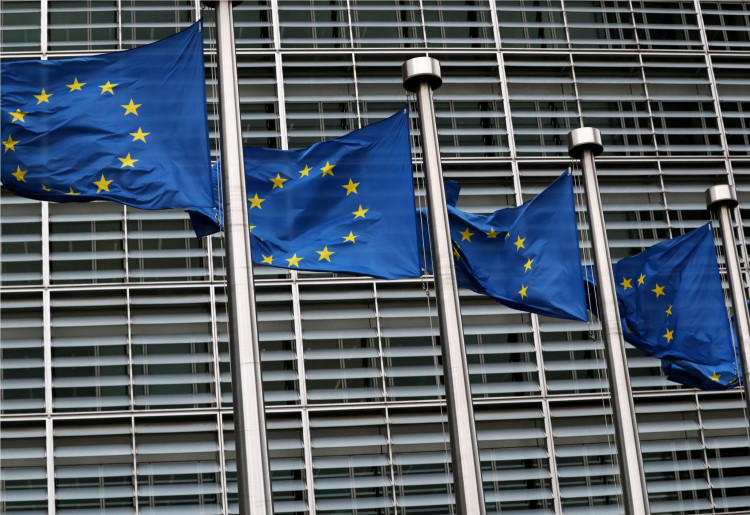A year ago, Europe was grappling with a severe energy crisis, and economists were pessimistic about its performance in 2023. However, Europe has managed to avoid recession multiple times, and inflation has decreased more optimistically than expected.
Looking ahead to 2024, economists are slightly more pessimistic than market expectations about Europe's prospects, with most predicting that the Eurozone's GDP growth rate will be just over 0.6%, indicating weak growth but not a recession.
On Tuesday, a survey of 48 economists revealed that nearly two-thirds believe the Eurozone is currently in a recession, typically defined as two consecutive quarters of GDP contraction. The final GDP for the third quarter of this year was revised down to -0.1%.
However, the majority of respondents predict that the current contraction will be brief and mild, with positive growth resuming in the first quarter of 2024. They expect only weak growth and warn of the potential for a severe recession due to high interest rates, energy market volatility, and geopolitical instability.
Emerging from Recession with Weak Economic Growth On average, economists surveyed by the media predict that the Eurozone economy will grow slightly more than 0.6% next year. Most are more pessimistic than the European Central Bank and the International Monetary Fund, which forecast growth of 0.8% and 1.2% for the Eurozone, respectively.
The biggest risks facing the European economy are identified as "a recession in Germany or Italy and a Trump victory."
Some economists suggest that Trump's re-election as U.S. President could drag the Eurozone into weaker growth. Holger Schmieding, Chief Economist at Berenberg, stated:
"Trump's victory is the main threat to the European economic outlook. If the U.S. abandons Ukraine and threatens the EU with trade conflicts, Europe and the world will suffer more than the U.S."
Two-thirds of respondents believe that after most of 2023 saw contraction, the German economy will return to positive growth next year. However, Mark Wall, Chief European Economist at Deutsche Bank, noted:
Germany's fiscal policy is tightening significantly, with a budget shortfall of 60 billion euros, meaning its economy will contract by 0.2% next year.
Additionally, Mahmood Pradhan, Global Head of Macro Economics at Amundi Asset Management, indicated that the prolonged restrictive monetary policy will slow economic growth, especially for Germany, the "economic engine of Europe."
Inflation Gradually Falling to 2% Target, Unemployment Rising More than half of the economists believe Europe could face another energy supply shock next year, despite full natural gas storage and low oil prices as winter approaches.
Katharine Neiss, Chief European Economist at PGIM Fixed Income, said:
Europe is still subject to energy supply constraints, so any risks related to energy supply could lead to significant price increases.
In terms of inflation, economists expect Eurozone inflation to fall to near the ECB's 2% target within two years. They predict an average CPI growth rate of just over 2.5% next year and slightly below 2.1% in 2025. These forecasts are slightly lower than the ECB's predictions of 2.7% for next year and 2.1% for 2025.
According to the survey's average forecast, wage growth in the Eurozone next year is expected to be just under 4%, lower than the ECB's 4.6% forecast but still indicating that Eurozone real household income will grow for the third consecutive year.
Most economists are more pessimistic about the labor market outlook for next year than the European Central Bank. On average, they predict the unemployment rate will rise from 6.5% in October to 6.9% by the end of next year.
Sylvain Broyer, Chief European, Middle East, and African Economist at S&P Global Ratings, stated:
Besides political and geopolitical risks, the biggest endogenous threat to the Eurozone economy will be a sluggish labor market. In such a scenario, the real income growth on which the 'soft landing' scenario relies may disappear.






